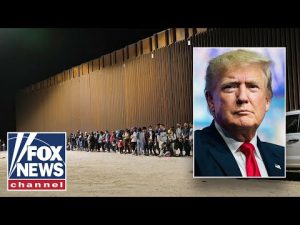The recent decisions made by Secretary of State Marco Rubio signal a significant and much-needed shift in our government’s approach to both foreign influence and domestic free speech rights. In a world where the line between safeguarding the nation and suppressing political expression can get blurry, the moves announced by Rubio represent a clear stand for accountability and constitutional freedoms.
At the heart of the matter is the dismantling of the Global Engagement Center, initially created to combat the radicalization efforts of groups like Al-Qaeda and ISIS. The original intent was commendable; however, it soon spiraled into a tool for stifling political dissent within the United States. Instead of just monitoring external threats, it began to label American citizens’ speech as “foreign meddling.” It’s like trying to catch a fly with a sledgehammer – not only do you miss, but you might end up breaking your own windows in the process.
Fortunately, Rubio’s reevaluation process has led to a commitment to stop funding these problematic initiatives that weaponize government agencies against citizens. This is a crucial step toward restoring the integrity of American institutions that should be there to protect free speech rather than suppress it. After all, dispelling the notion that the government could simply cash in on taxpayer dollars to stifle voices it considers “undesirable” is a win for democracy, no matter how you slice it.
Moreover, the administration’s focus on student visa holders raises essential questions about who should be allowed to study in the United States. It’s not an entitlement; it’s a privilege. If someone expresses admiration for terrorist organizations while seeking to enter or remain in the U.S., the answer should be clear: they simply should not be here. Imagine inviting guests to your home who spent their leisure time plotting disruption. That’s akin to making it easy for radical ideas to fester on our campuses. Campus unrest has reached laughable levels, where some institutions can’t even function because of these activities. It’s time to ask: what are we doing allowing this chaos in the name of free thought?
Rubio’s stance on revoking visas for individuals who profess support for foreign terror groups marks a fortified position on national security. Rather than turning a blind eye to hostile sentiments, we’re taking a proactive approach by ensuring that individuals who pose a danger to America’s interests don’t get a pass simply due to their student status. Countries worldwide don’t hesitate to enforce their immigration laws; it’s about time we follow suit.
Lastly, it’s enlightening to witness Rubio tackle the mindset prevalent among some political circles, which suggests that once someone makes it across the border—legally or illegally—they deserve to stay permanently. It’s a slippery slope toward chaos when the narrative becomes that everyone is entitled to residency just by crossing in. When immigration laws are treated as mere suggestions, it creates an unsustainable situation, incentivizing more unlawful entries. The reality is people must understand that borders exist for a reason, and maintaining the rule of law is paramount.
In conclusion, the actions taken by Rubio at the State Department serve not only to reinstate common sense but also to champion the principles that have made America a beacon of hope and safety. Reflecting on the larger implications, this is about ensuring that our nation remains a land of opportunity based on law, order, and above all, the unwavering commitment to our foundational ideals of freedom and justice. The road ahead may be long, but with these reforms, America is undoubtedly moving in the right direction.







